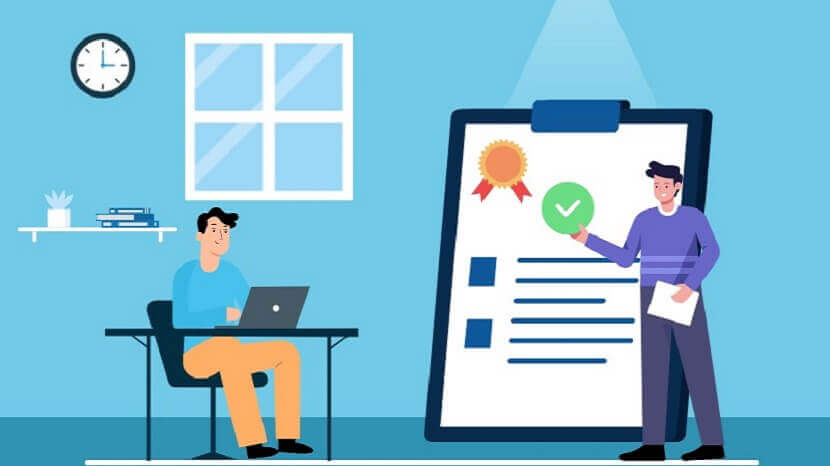What Should a Great Software Development Proposal Include 2024
Last updated on December 21, 2024 by Digital Sky Star

"The most important thing in business is innovation, and trends and technologies are at its heart."
Crafting a stellar software development proposal requires meticulous attention to not only showcase your technical capabilities but also to align with the prospective client’s needs. Before you even begin drafting, conducting thorough client discovery is crucial. This deep dive into the potential client's business helps tailor your proposal, ensuring it resonates with their unique challenges and goals. Then, with a comprehensive understanding of the client's background, you can move on to structure your proposal in a way that clearly outlines how your services will address their specific requirements.
A powerful software development proposal template can give you a head start, shaping your document into a persuasive, organized pitch. Your proposal should present a clear narrative, beginning with an executive summary that captures attention and highlights the value of your proposition. The main body should detail the project scope, timelines, budget, and any key technologies or methodologies you’ll employ. Good proposals frequently include visuals such as diagrams or charts to elucidate complex information, making the proposal not just informative but also engaging.
Key Takeaways
- Engage in thorough client discovery to personalize the proposal.
- Utilize an organized proposal outline that communicates value.
- Ensure your document is comprehensive and easy to understand.
Proposal Structure and Content
Creating a comprehensive software development proposal necessitates clear structuring and detailed content that touch upon each crucial aspect of the project. This ensures that you fully understand what is being offered and the value it brings to your business.
1. Executive Summary
This section succinctly summarizes the entire proposal, outlining the primary goals, deliverables, and benefits that align with your needs. It will provide you with a compelling overview, capturing the essence of the proposed software solution and how it addresses your pain points.
2. Project Details
The project details give you a clear picture of the project name, project overview, and the full scope of work. The subsection thoroughly explains the features, deliverables, and project timeline, including key milestones, for a well-defined path forward.
3. Business and Technical Approaches
The focus here is on the methodology and transparency of the proposed technical solutions. You'll gain insight into how the development team plans to utilize specific programming languages, frameworks, and agile methodology to meet your project's requirements.
4. Pricing, Licensing, and Terms
A transparent breakdown of costs, budget, pricing, licensing, and payment terms is essential. You'll find clear information on terms and conditions, intellectual property rights, and confidentiality to ensure there are no surprises down the line.
5. Company Overview and Credentials
Get to know the company with an overview highlighting differentiators and competition. This part includes case studies, client testimonials, and the expertise of team members to build confidence in their ability to deliver.
6. Project Management and Follow-up
This segment outlines the project management processes and the implementation strategy post-deployment. It details the follow-up support to ensure that communication and any questions you may have are addressed throughout the project lifespan.
7. Proposed Solution and Benefits
Discover the tailored proposed solution along with a detailed explanation of how it will benefit your organization. It focuses on the differentiation from other market solutions and how it catively solves your specific challenges.
8. Additional Information and Appendices
Here you'll find detailed documentation, proposal templates that can be customized, and any additional information or responses to a request for proposal (RFP) that support the overall proposal.
9. Closing Statement
The proposal concludes with a call to action that encourages you to take the next step, whether it's setting up a meeting for further discussion or moving towards contract and signature.
Each of these subsections is strategically crafted to give you a full understanding of what the software development proposal seeks to accomplish and how it can transform your business operations.
Conclusion
Crafting a top-notch software development proposal is essential for showcasing your technical capabilities, understanding of client needs, and project management skills. Remember to articulate the scope of work, benefits to the client, and your unique strengths clearly. It's important to always end with a call to action to encourage the client towards the next step. Stick to these pillars, and your software proposal will stand out.
"Technology is best when it brings people together." – Matt Mullenweg
If you would like more information about the What Should a Great Software Development Proposal Include 2024, please send us an email.
Written by Digital Sky Star
Trends and Technologies
Trends and Technologies are shaping the future with innovations in AI, IoT, blockchain, and more. Stay updated on the latest advancements transforming industries worldwide. Explore cutting-edge tools, insights, and breakthroughs that drive progress and efficiency. Unlock potential, embrace change, and stay ahead in the ever-evolving tech landscape.
